The next time you pass by Powai lake on a Sunday, if you look across the water, you will spy a clan of anglers.
If I were him I would put in everything now and go until something broke. But, thank God, they are not as intelligent as we who kill them; although they are more noble and more able.
-- Old Man And The Sea by Ernest Hemingway
Javed Ansari, 32, MD of Kwality Bakery, can relate to the old man’s epic struggle with a giant marlin described in Ernest Hemingway’s classic tale. He is just back from Panama where he caught a 112kg tuna.
“After I hooked the fish, I had to struggle with it for almost three hours. Only when it got tired did I manage to land the fish onboard. It is my biggest catch to date,” says Ansari. “My only regret is that I couldn’t catch a marlin. There were three boats out on that day and on the other two I could see the anglers were struggling with a marlin. But not me,” adds this enthusiastic member of the Maharashtra State Angling Association (MSAA), which is based on the banks of Powai lake. He has already made bookings to go back to Panama next February and intends to catch a 200kg marlin then.
But doesn’t the aura over Hemingway and angling hide the cruelty in this sport? “You either love angling or you hate it. There really is no in-between,” admits Dr Ian D’Souza, a surgical oncologist, who is a regular at the Powai lake machaan where anglers hang out. His father was a hunter until wildlife conservation put an end to it. He then took up angling.
For Dr D’Souza, the hook is the tranquillity and contemplation that comes with angling. Sitting in the gently bobbing machaan, feeling as light as the breeze, watching the water’s rhythmic movement, worldly pressures melt away: “(As a cancer surgeon), I deal with pain all week. This is the place I come to destress. Even if you don’t catch any fish, just sitting by the lake is a great experience. I have sat here for many hours on Sundays, enquiring about my patients only over the phone.”
Others like MA Ghani, secretary of the MSAA, do get a thrill out of fighting a large fish, but without wanting to kill it. “Countries like the US and Canada keep a check on the kind of hooks you use to reduce injury to the fish. In many places abroad you are not allowed to take the fish back home. You have to let it back in the water. In Bhimeshwar, Karnataka where the government actively promotes angling, this regulation is strictly enforced. This is the spirit we are trying to promote in India as well. But it will take time to establish such a culture.”
The MSAA that is now celebrating its 75th year has given a start to many anglers in Mumbai. Hidden from the busy Powai road by a patch of green, a bay in the lake houses multi-coloured machaans where anglers sit for hours together, chatting over coffee and snacks — that is, until the peacock feather dips, which tells you a fish nibbling on the bait.
It can be a great way to bond with family and friends. D’Souza remembers the last fishing trip he had with his father. “It was just two weeks before he passed away. He was 87 at the time, but he made all the arrangements for the trip to a place called Vijaydurg along the Konkan coast. We spent three days together talking about the old days. On the last day, he got his prize catch, a 22lb queenfish. He was so proud of it. The next week he fell ill. Lying on the hospital bed, he couldn’t speak, but he insisted through gestures that every visitor be shown the picture of the queenfish he caught.”
D’Souza's own prize catch is a 16kg catla he caught at Powai. “Even if I don’t catch another fish in Powai now it’s OK. I will die a happy man.”
What’s angling?
Angling is a sport that involves catching fish — the larger the better — with rods, lines, hooks and baits.
Hooking a fish is only half the battle won. Large fish have tremendous strength in water and you need to tire them out before landing them. In fresh water, the mahseer is the prize catch. In the sea, catching a 200kg marlin gives anglers the ultimate high.
There are are different types of angling. Still-water angling, which you can do in lakes like the Powai lake is very relaxing. You can also do angling in rivers. At the other extreme is deep sea angling where you go more than 100km out into the sea. Deep sea angling requires exceptional physical fitness.
Where do you angle?
In Mumbai, the place to go angling is at the Powai lake. Earlier you could even catch fish off Land’s End in Bandra and Mahim Creek. There are many places along the Konkan coast such as Alibaug, Harihareshwar, Kankavli and Vijaydurg, where you can go angling.
One of the best places for fresh-water angling is in Bhimeshwar in Karnataka. This is a stretch of the river Cauvery, which attracts anglers from all over the world. According to anglers, the best variety of mahseers can be caught here.
Where do you get the equipment?
Kata Bazaar in Masjid is the place to go in Mumbai. Rods are available from Rs3,000. You can also source your equipment from places like Singapore or Australia. Baits for fresh-water angling involves mixing a special masala with flour, mud, etc. They have interesting names like Jaldi Aao. The recipe is secret and anglers usually source this from Kolkata.
Join the clan
Membership to the Maharashtra State Angling Association is open. The fee for joining is Rs25,000 and annually you have to pay Rs3,000. Contact Gordon Rodricks, vice-president of MSAA, at 2636 4270.
![submenu-img]() Big update on Pakistan's first-ever Moon mission and it has this China connection...
Big update on Pakistan's first-ever Moon mission and it has this China connection...![submenu-img]() 2024 Maruti Suzuki Swift officially teased ahead of launch, bookings open at price of Rs…
2024 Maruti Suzuki Swift officially teased ahead of launch, bookings open at price of Rs…![submenu-img]() 'Kyun bhai kyun?': Sheezan Khan slams actors in Sanjay Leela Bhansali's Heeramandi, says 'nobody could...'
'Kyun bhai kyun?': Sheezan Khan slams actors in Sanjay Leela Bhansali's Heeramandi, says 'nobody could...'![submenu-img]() Meet Jai Anmol, his father had net worth of over Rs 183000 crore, he is Mukesh Ambani’s…
Meet Jai Anmol, his father had net worth of over Rs 183000 crore, he is Mukesh Ambani’s…![submenu-img]() Shooting victim in California not gangster Goldy Brar, accused of Sidhu Moosewala’s murder, confirm US police
Shooting victim in California not gangster Goldy Brar, accused of Sidhu Moosewala’s murder, confirm US police![submenu-img]() DNA Verified: Is CAA an anti-Muslim law? Centre terms news report as 'misleading'
DNA Verified: Is CAA an anti-Muslim law? Centre terms news report as 'misleading'![submenu-img]() DNA Verified: Lok Sabha Elections 2024 to be held on April 19? Know truth behind viral message
DNA Verified: Lok Sabha Elections 2024 to be held on April 19? Know truth behind viral message![submenu-img]() DNA Verified: Modi govt giving students free laptops under 'One Student One Laptop' scheme? Know truth here
DNA Verified: Modi govt giving students free laptops under 'One Student One Laptop' scheme? Know truth here![submenu-img]() DNA Verified: Shah Rukh Khan denies reports of his role in release of India's naval officers from Qatar
DNA Verified: Shah Rukh Khan denies reports of his role in release of India's naval officers from Qatar![submenu-img]() DNA Verified: Is govt providing Rs 1.6 lakh benefit to girls under PM Ladli Laxmi Yojana? Know truth
DNA Verified: Is govt providing Rs 1.6 lakh benefit to girls under PM Ladli Laxmi Yojana? Know truth![submenu-img]() Remember Heyy Babyy's cute 'Angel' Juanna Sanghvi? 20 year-old looks unrecognisable now, fans say 'her comeback will...'
Remember Heyy Babyy's cute 'Angel' Juanna Sanghvi? 20 year-old looks unrecognisable now, fans say 'her comeback will...'![submenu-img]() In pics: Arti Singh stuns in red lehenga as she ties the knot with beau Dipak Chauhan in dreamy wedding
In pics: Arti Singh stuns in red lehenga as she ties the knot with beau Dipak Chauhan in dreamy wedding![submenu-img]() Actors who died due to cosmetic surgeries
Actors who died due to cosmetic surgeries![submenu-img]() See inside pics: Malayalam star Aparna Das' dreamy wedding with Manjummel Boys actor Deepak Parambol
See inside pics: Malayalam star Aparna Das' dreamy wedding with Manjummel Boys actor Deepak Parambol ![submenu-img]() In pics: Salman Khan, Alia Bhatt, Rekha, Neetu Kapoor attend grand premiere of Sanjay Leela Bhansali's Heeramandi
In pics: Salman Khan, Alia Bhatt, Rekha, Neetu Kapoor attend grand premiere of Sanjay Leela Bhansali's Heeramandi![submenu-img]() DNA Explainer: Why Harvey Weinstein's rape conviction was overturned, will beleaguered Hollywood mogul get out of jail?
DNA Explainer: Why Harvey Weinstein's rape conviction was overturned, will beleaguered Hollywood mogul get out of jail?![submenu-img]() What is inheritance tax?
What is inheritance tax?![submenu-img]() DNA Explainer: What is cloud seeding which is blamed for wreaking havoc in Dubai?
DNA Explainer: What is cloud seeding which is blamed for wreaking havoc in Dubai?![submenu-img]() DNA Explainer: What is Israel's Arrow-3 defence system used to intercept Iran's missile attack?
DNA Explainer: What is Israel's Arrow-3 defence system used to intercept Iran's missile attack?![submenu-img]() DNA Explainer: How Iranian projectiles failed to breach iron-clad Israeli air defence
DNA Explainer: How Iranian projectiles failed to breach iron-clad Israeli air defence![submenu-img]() 'Kyun bhai kyun?': Sheezan Khan slams actors in Sanjay Leela Bhansali's Heeramandi, says 'nobody could...'
'Kyun bhai kyun?': Sheezan Khan slams actors in Sanjay Leela Bhansali's Heeramandi, says 'nobody could...'![submenu-img]() Meet actress who once competed with Aishwarya Rai on her mother's insistence, became single mother at 24, she is now..
Meet actress who once competed with Aishwarya Rai on her mother's insistence, became single mother at 24, she is now..![submenu-img]() Makarand Deshpande says his scenes were cut in SS Rajamouli’s RRR: ‘It became difficult for…’
Makarand Deshpande says his scenes were cut in SS Rajamouli’s RRR: ‘It became difficult for…’![submenu-img]() Meet 70s' most daring actress, who created controversy with nude scenes, was rumoured to be dating Ratan Tata, is now...
Meet 70s' most daring actress, who created controversy with nude scenes, was rumoured to be dating Ratan Tata, is now...![submenu-img]() Meet superstar’s sister, who debuted at 57, worked with SRK, Akshay, Ajay Devgn; her films earned over Rs 1600 crore
Meet superstar’s sister, who debuted at 57, worked with SRK, Akshay, Ajay Devgn; her films earned over Rs 1600 crore![submenu-img]() IPL 2024: Spinners dominate as Punjab Kings beat Chennai Super Kings by 7 wickets
IPL 2024: Spinners dominate as Punjab Kings beat Chennai Super Kings by 7 wickets![submenu-img]() Australia T20 World Cup 2024 squad: Mitchell Marsh named captain, Steve Smith misses out, check full list here
Australia T20 World Cup 2024 squad: Mitchell Marsh named captain, Steve Smith misses out, check full list here![submenu-img]() SRH vs RR, IPL 2024: Predicted playing XI, live streaming details, weather and pitch report
SRH vs RR, IPL 2024: Predicted playing XI, live streaming details, weather and pitch report![submenu-img]() SRH vs RR IPL 2024 Dream11 prediction: Fantasy cricket tips for Sunrisers Hyderabad vs Rajasthan Royals
SRH vs RR IPL 2024 Dream11 prediction: Fantasy cricket tips for Sunrisers Hyderabad vs Rajasthan Royals ![submenu-img]() IPL 2024: Marcus Stoinis, Mohsin Khan power Lucknow Super Giants to 4-wicket win over Mumbai Indians
IPL 2024: Marcus Stoinis, Mohsin Khan power Lucknow Super Giants to 4-wicket win over Mumbai Indians![submenu-img]() Viral video: Man's 'peek-a-boo' moment with tiger sends shockwaves online, watch
Viral video: Man's 'peek-a-boo' moment with tiger sends shockwaves online, watch![submenu-img]() Viral video: Desi woman's sizzling dance to Jacqueline Fernandez’s ‘Yimmy Yimmy’ burns internet, watch
Viral video: Desi woman's sizzling dance to Jacqueline Fernandez’s ‘Yimmy Yimmy’ burns internet, watch![submenu-img]() Viral video: Men turn car into mobile swimming pool, internet reacts
Viral video: Men turn car into mobile swimming pool, internet reacts![submenu-img]() Meet Youtuber Dhruv Rathee's wife Julie, know viral claims about her and how did the two meet
Meet Youtuber Dhruv Rathee's wife Julie, know viral claims about her and how did the two meet![submenu-img]() Viral video of baby gorilla throwing tantrum in front of mother will cure your midweek blues, watch
Viral video of baby gorilla throwing tantrum in front of mother will cure your midweek blues, watch
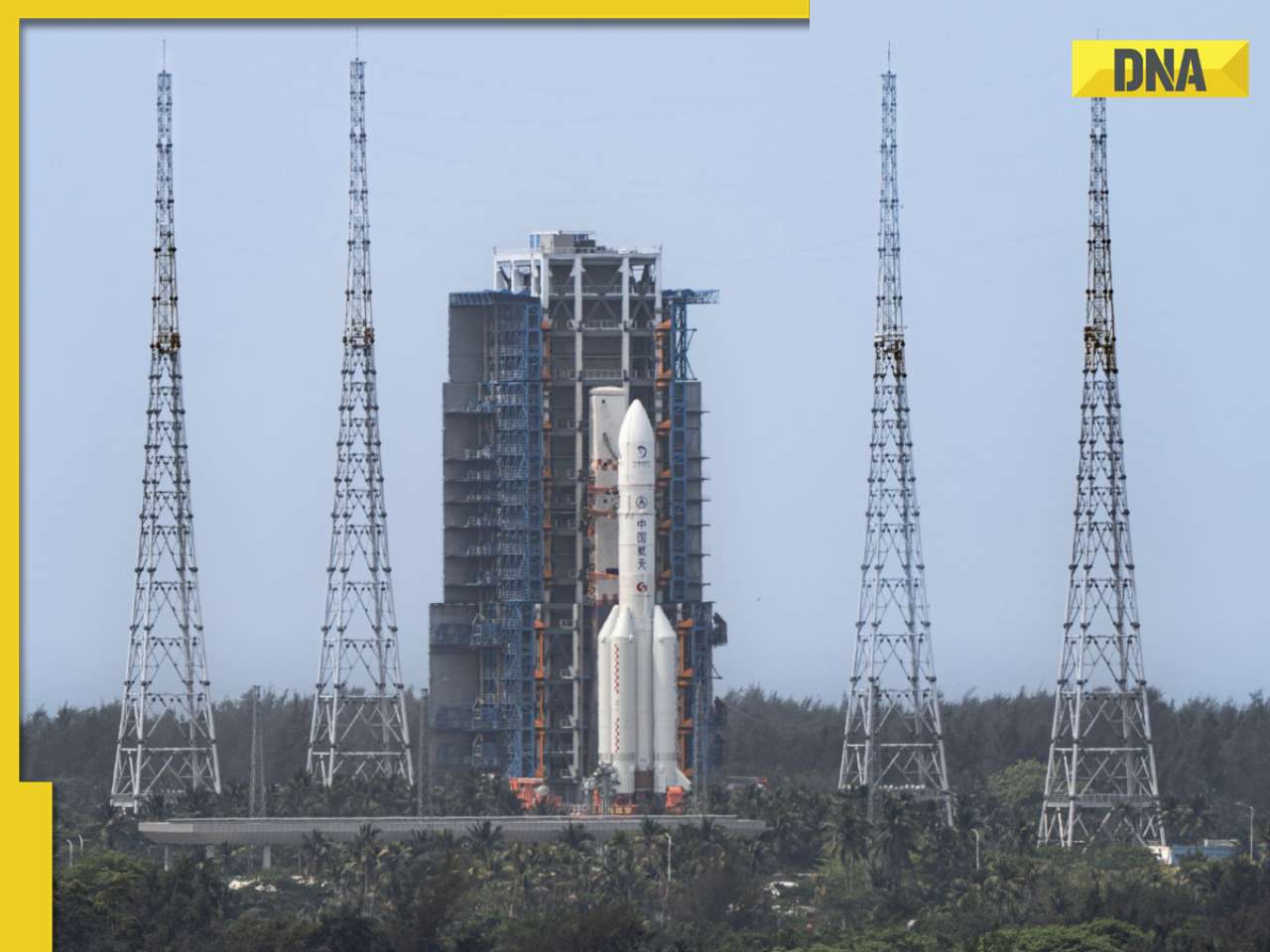

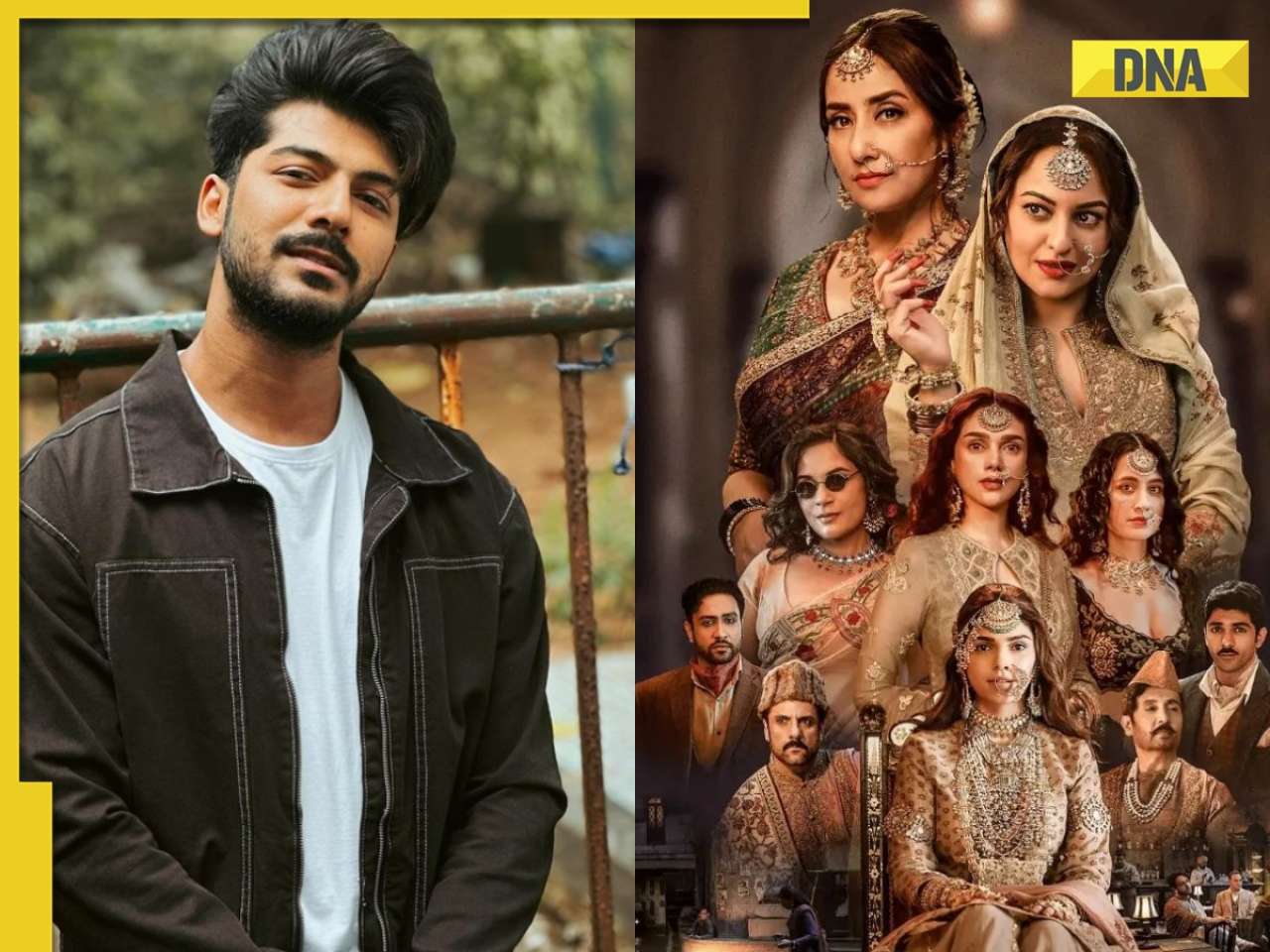
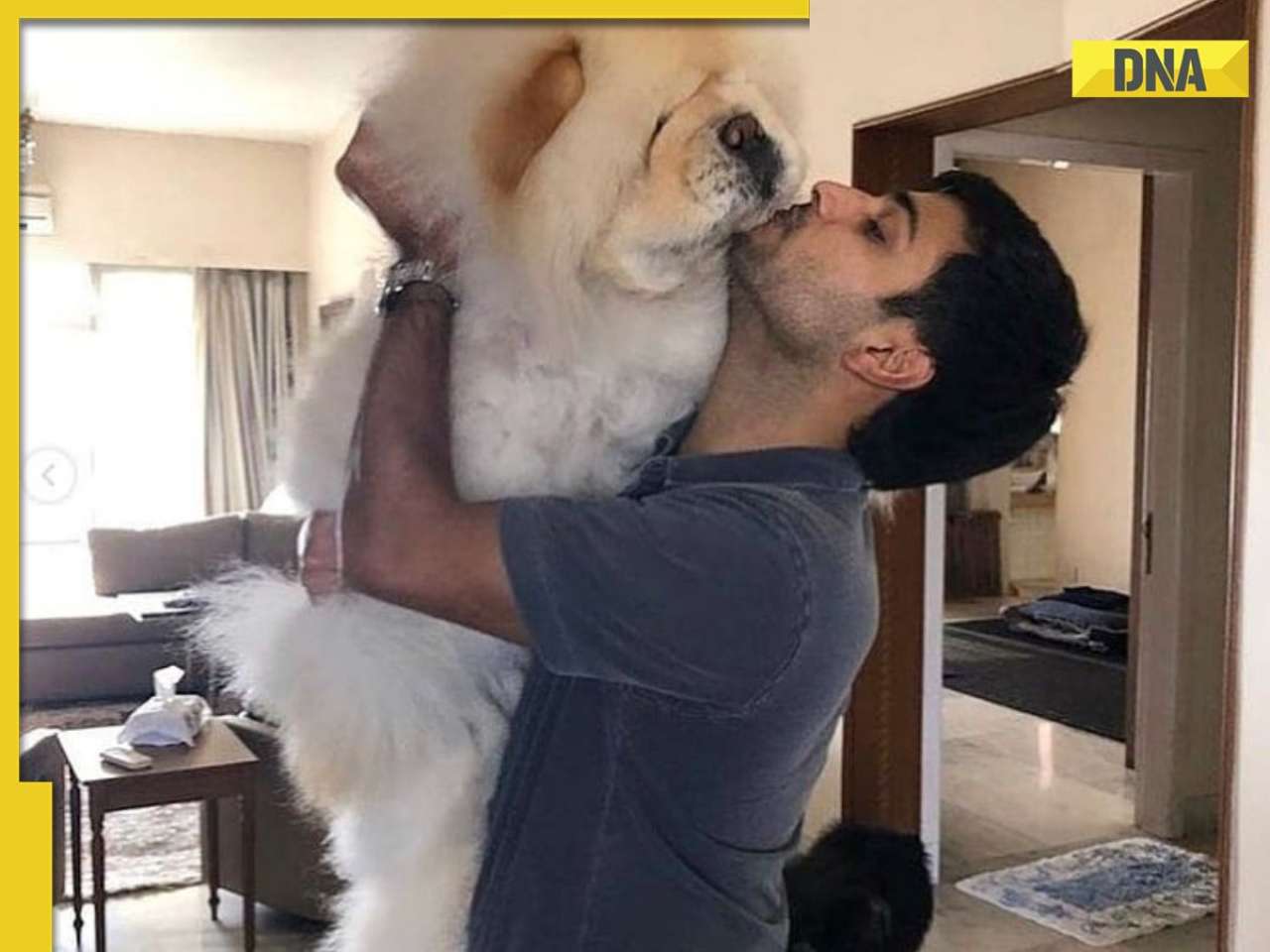
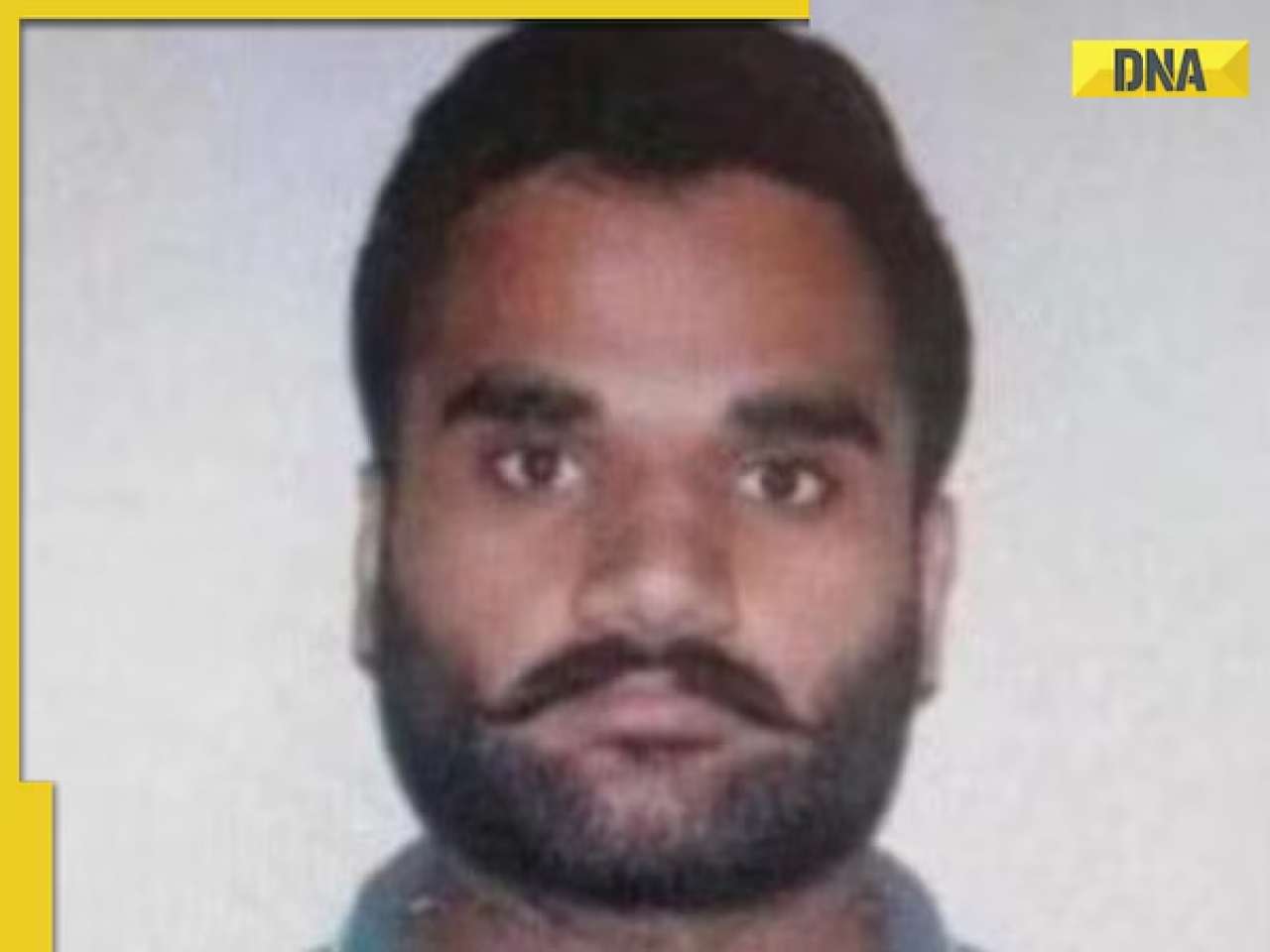




















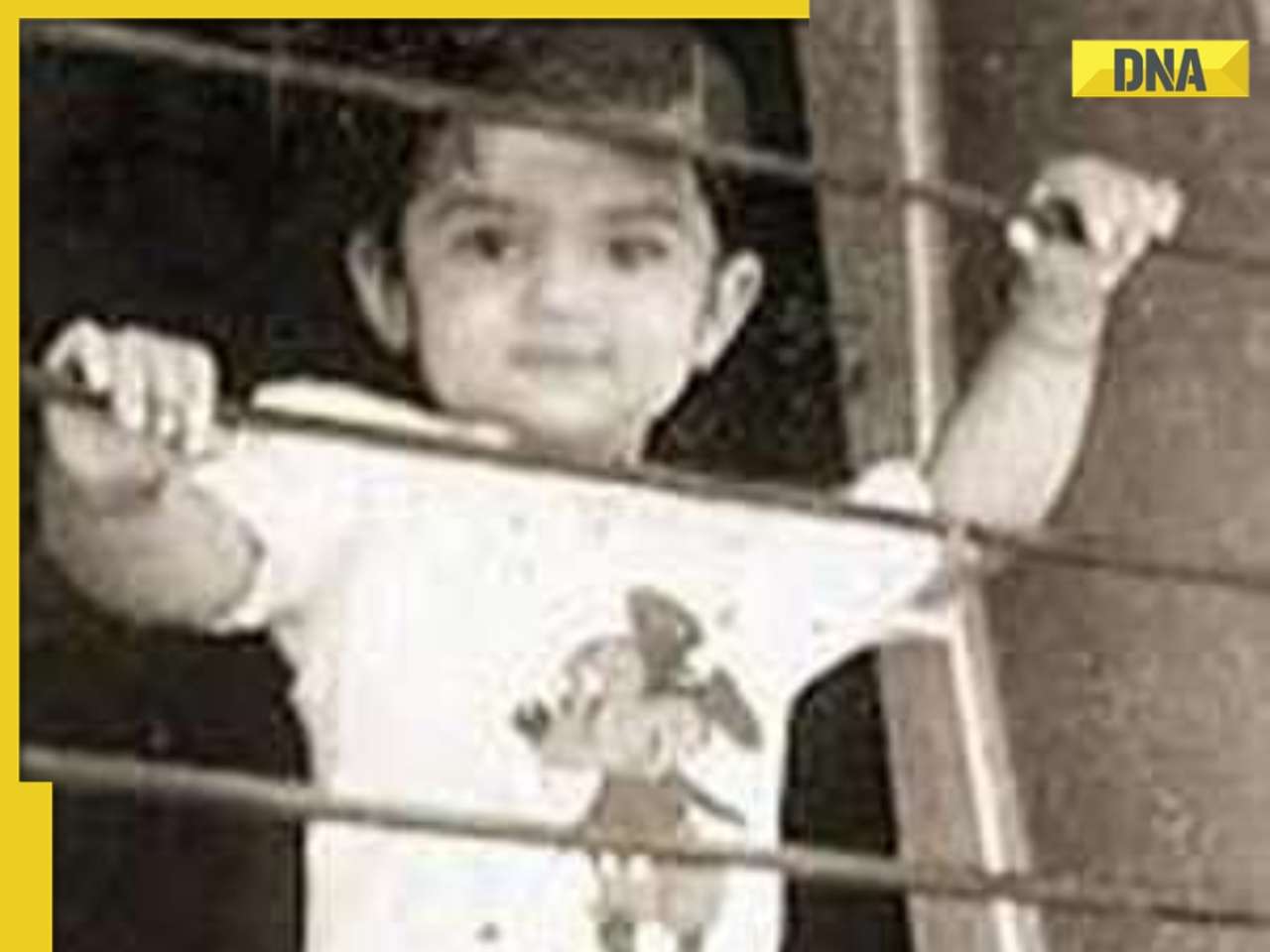
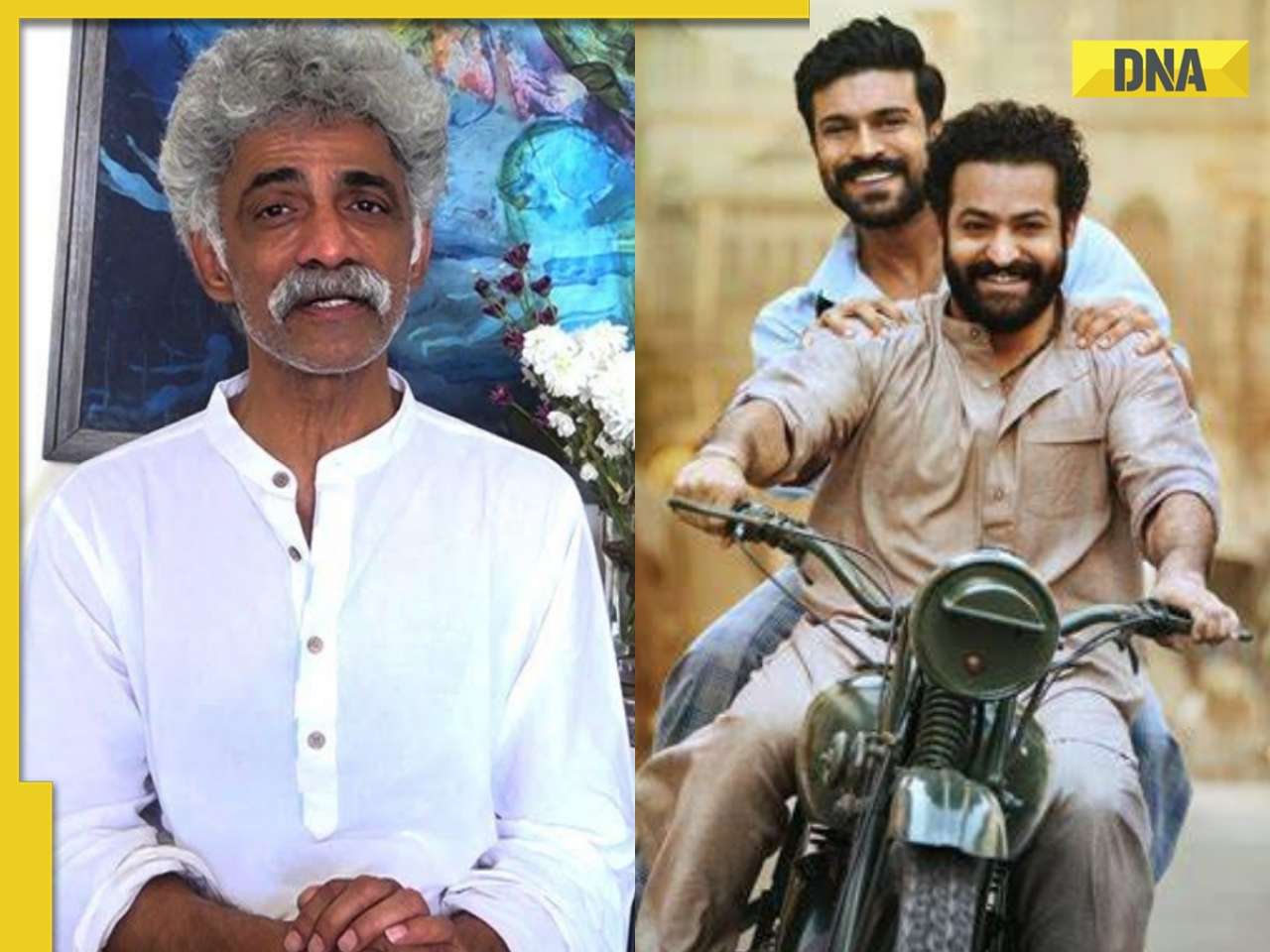
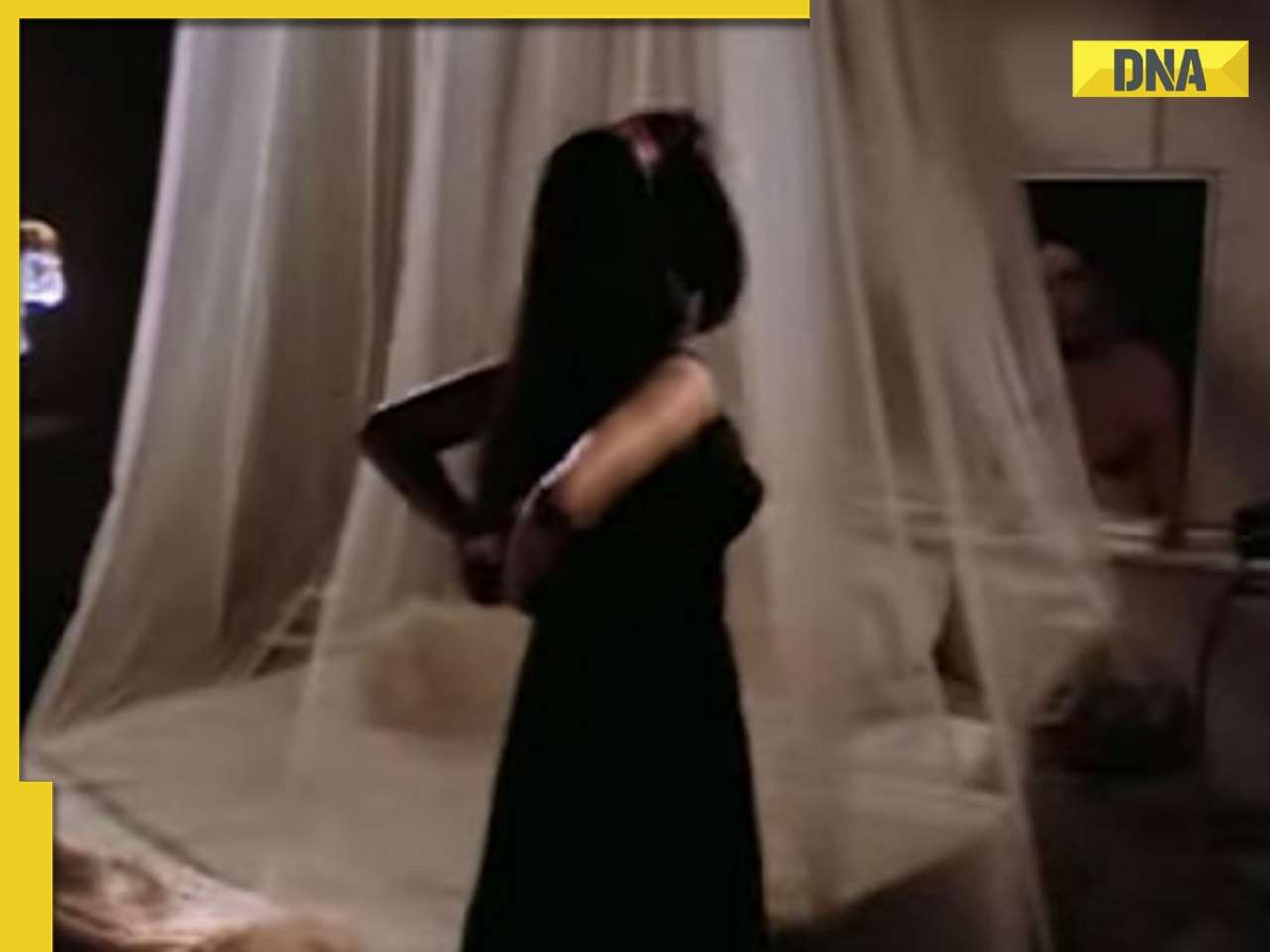
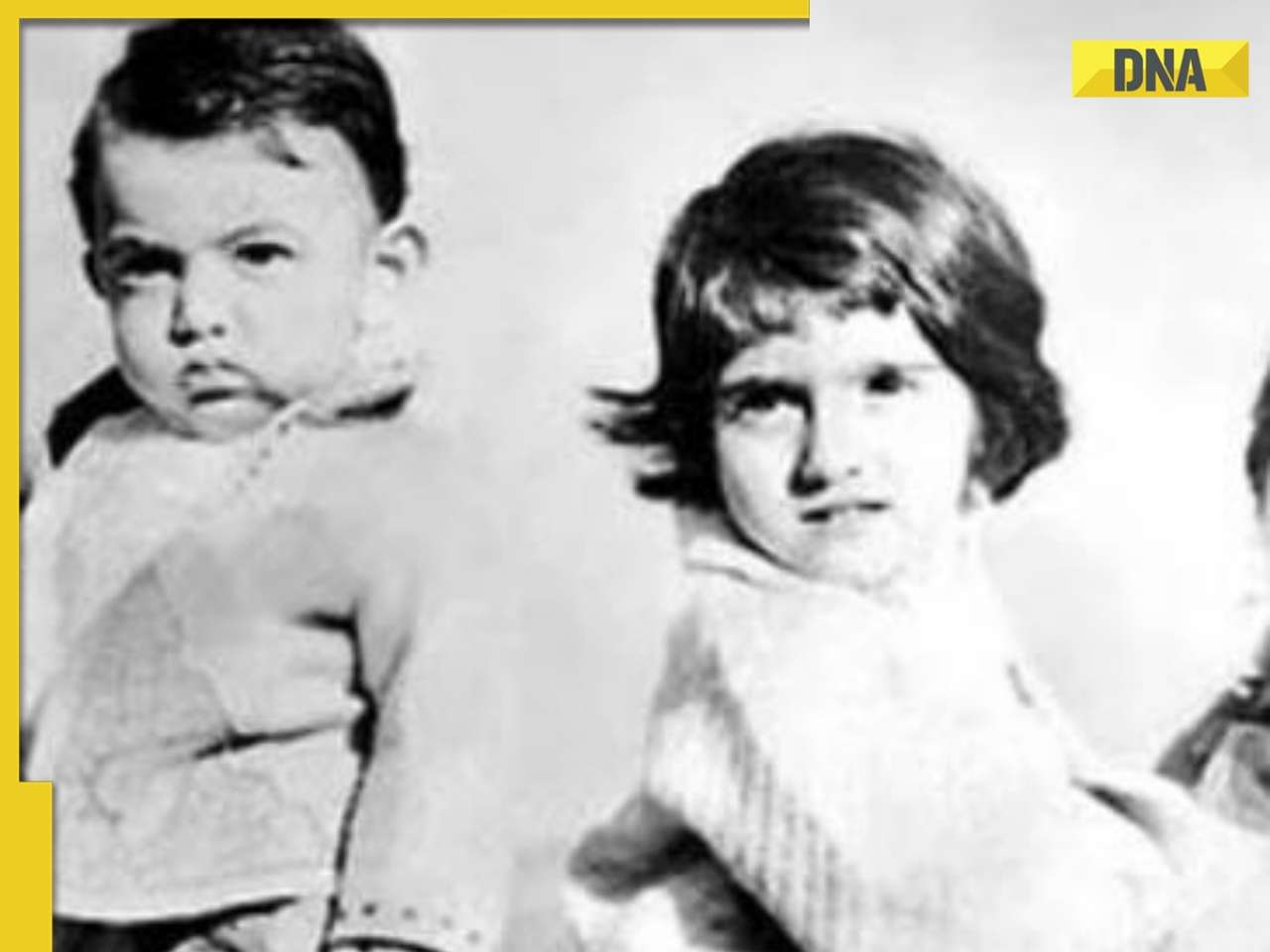
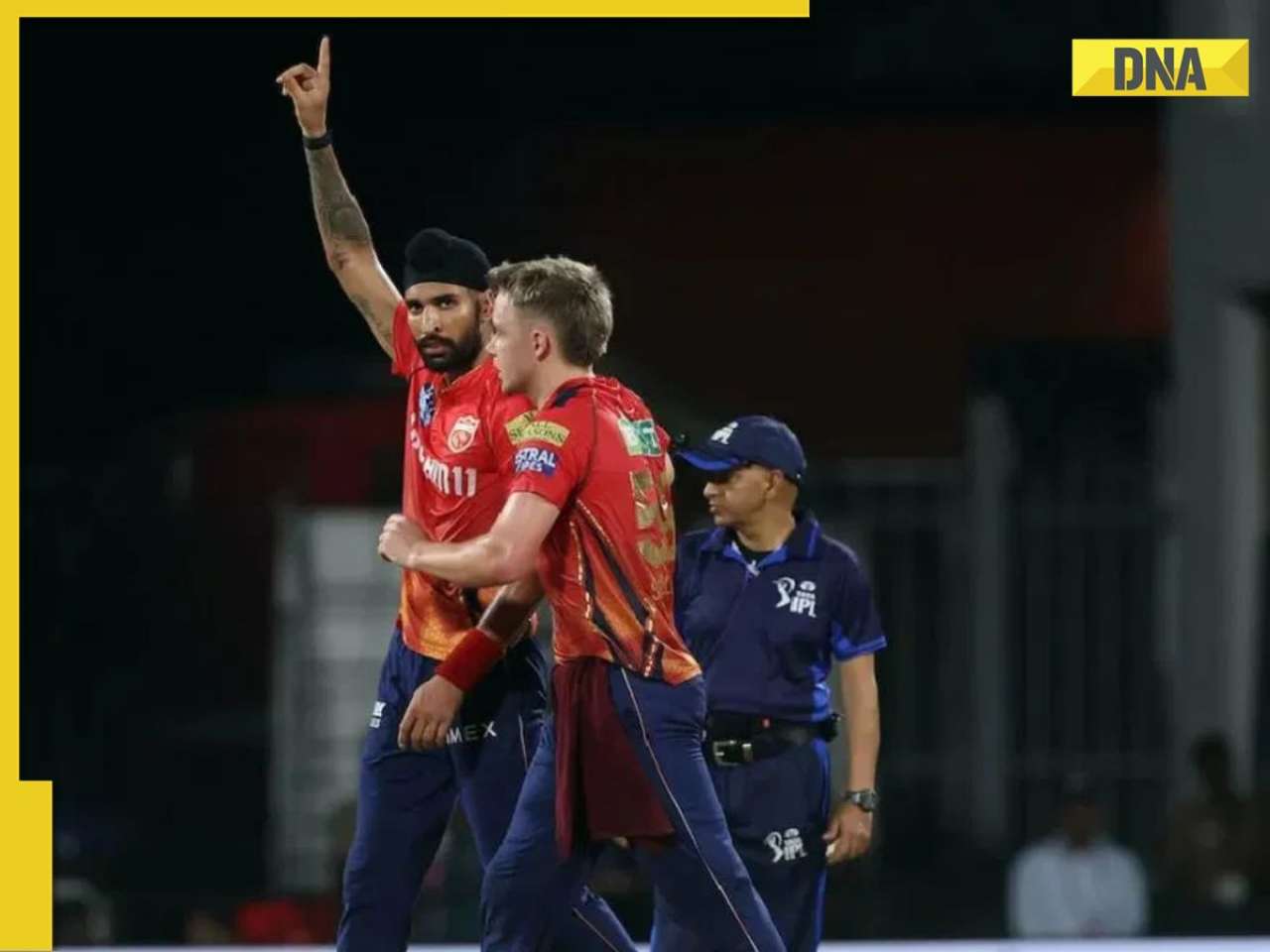
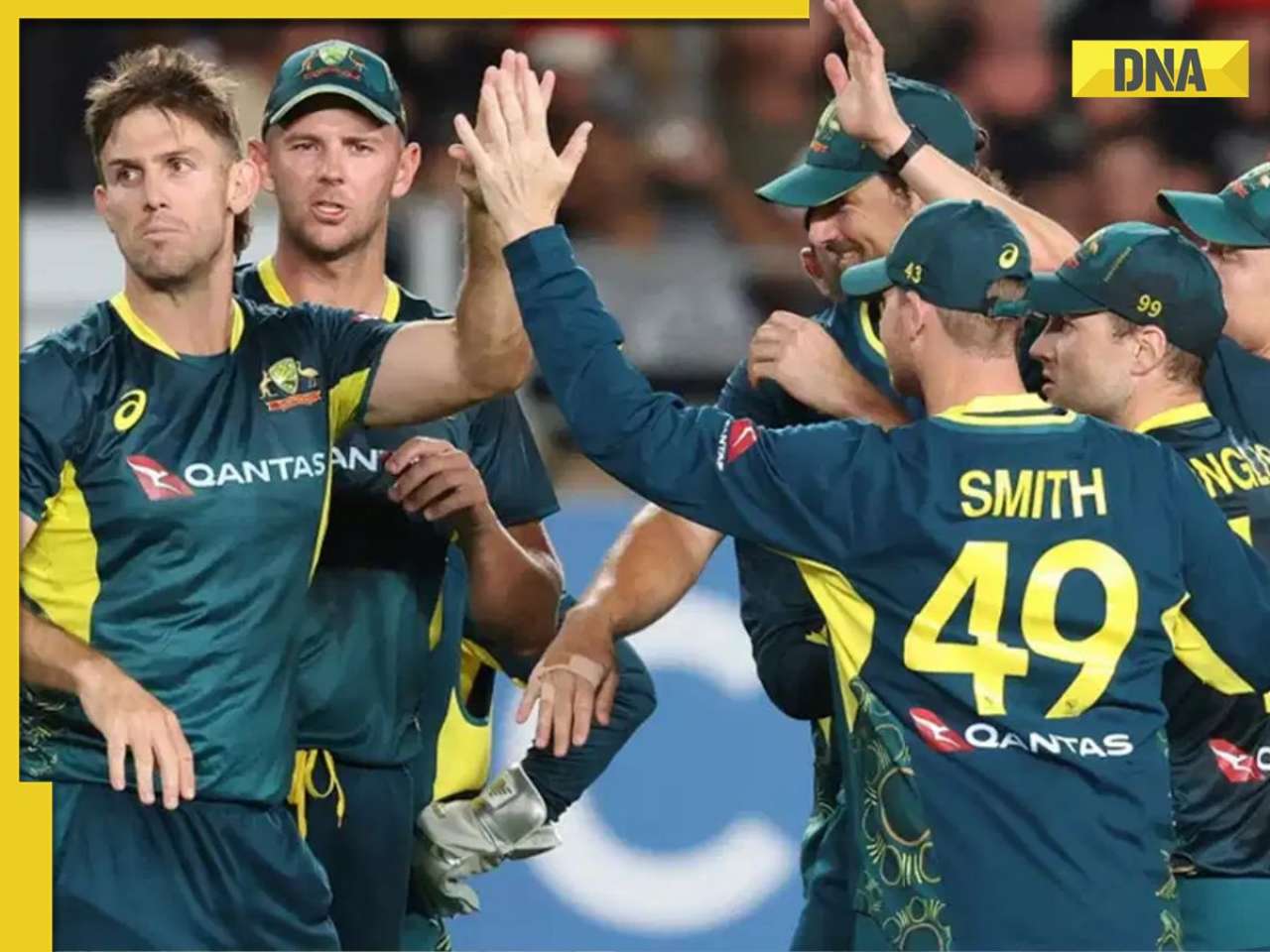
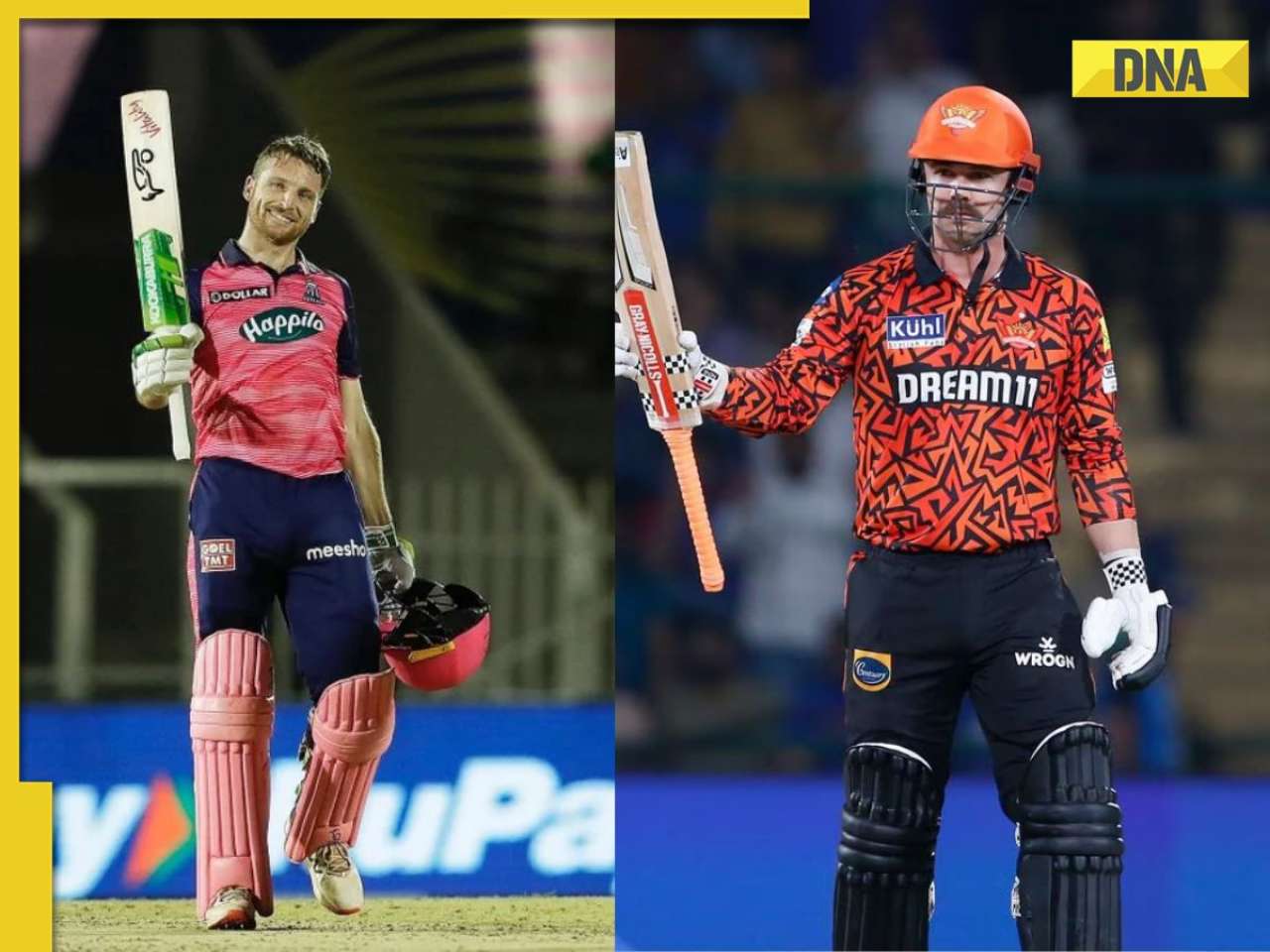
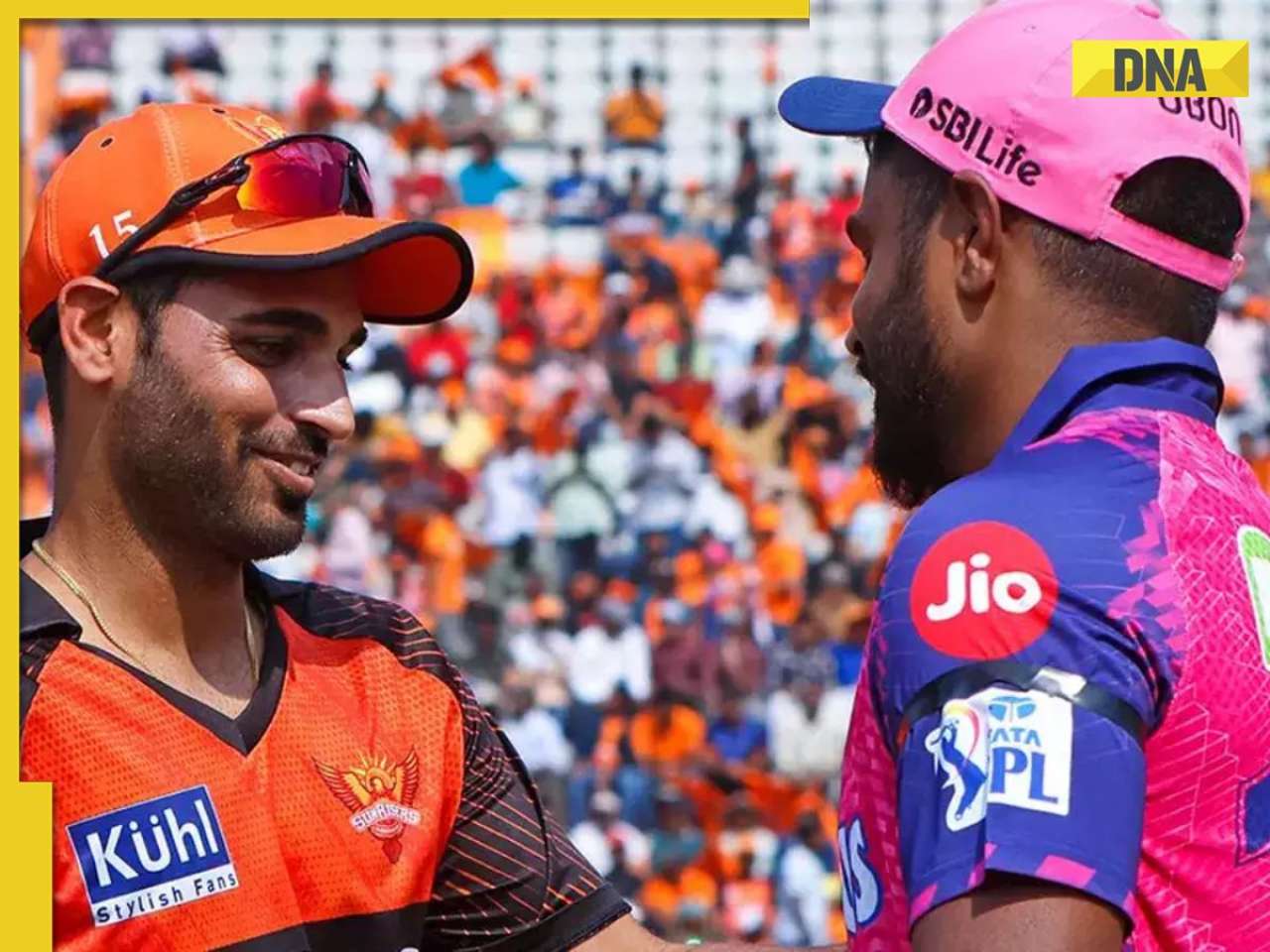

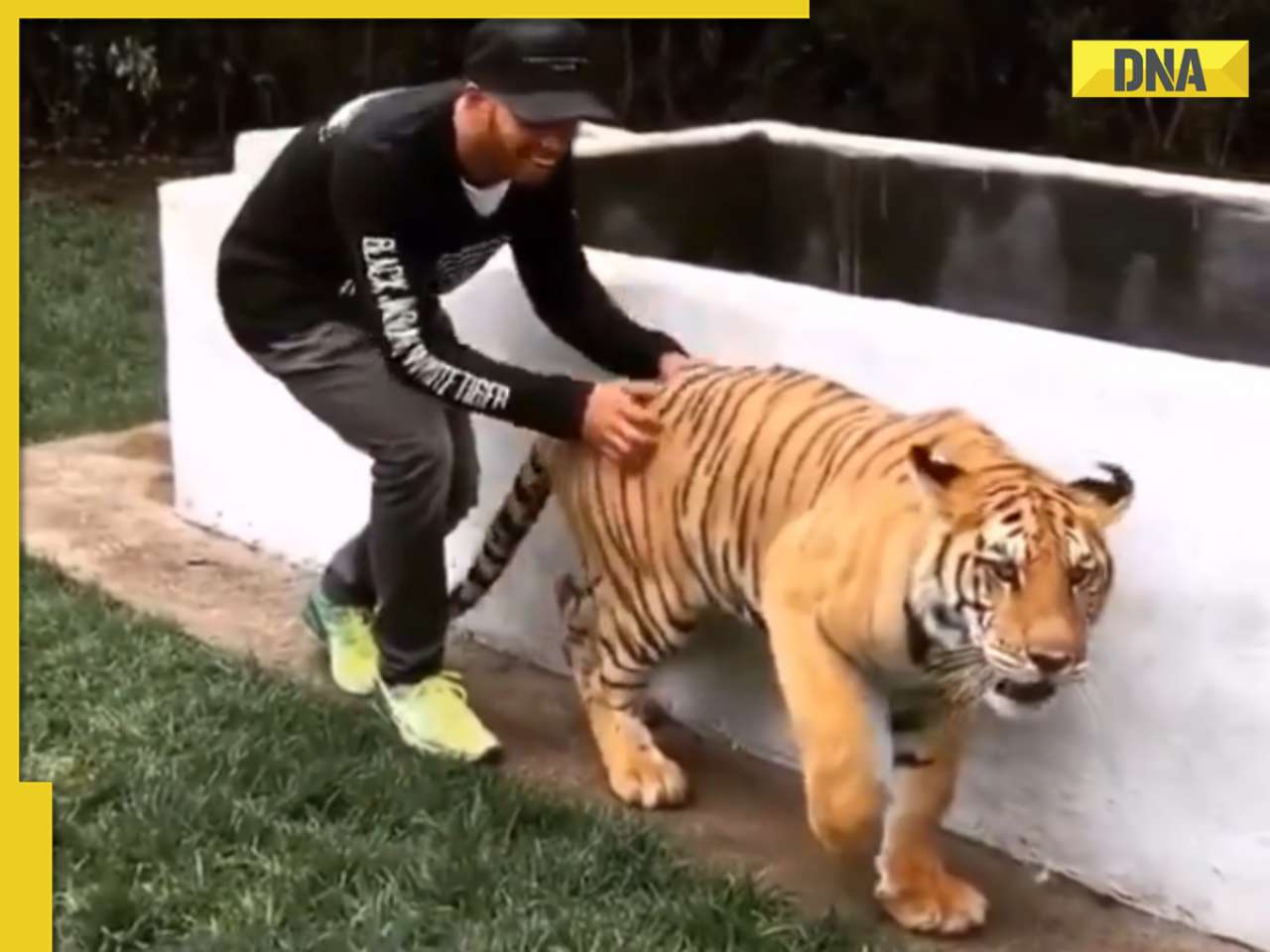

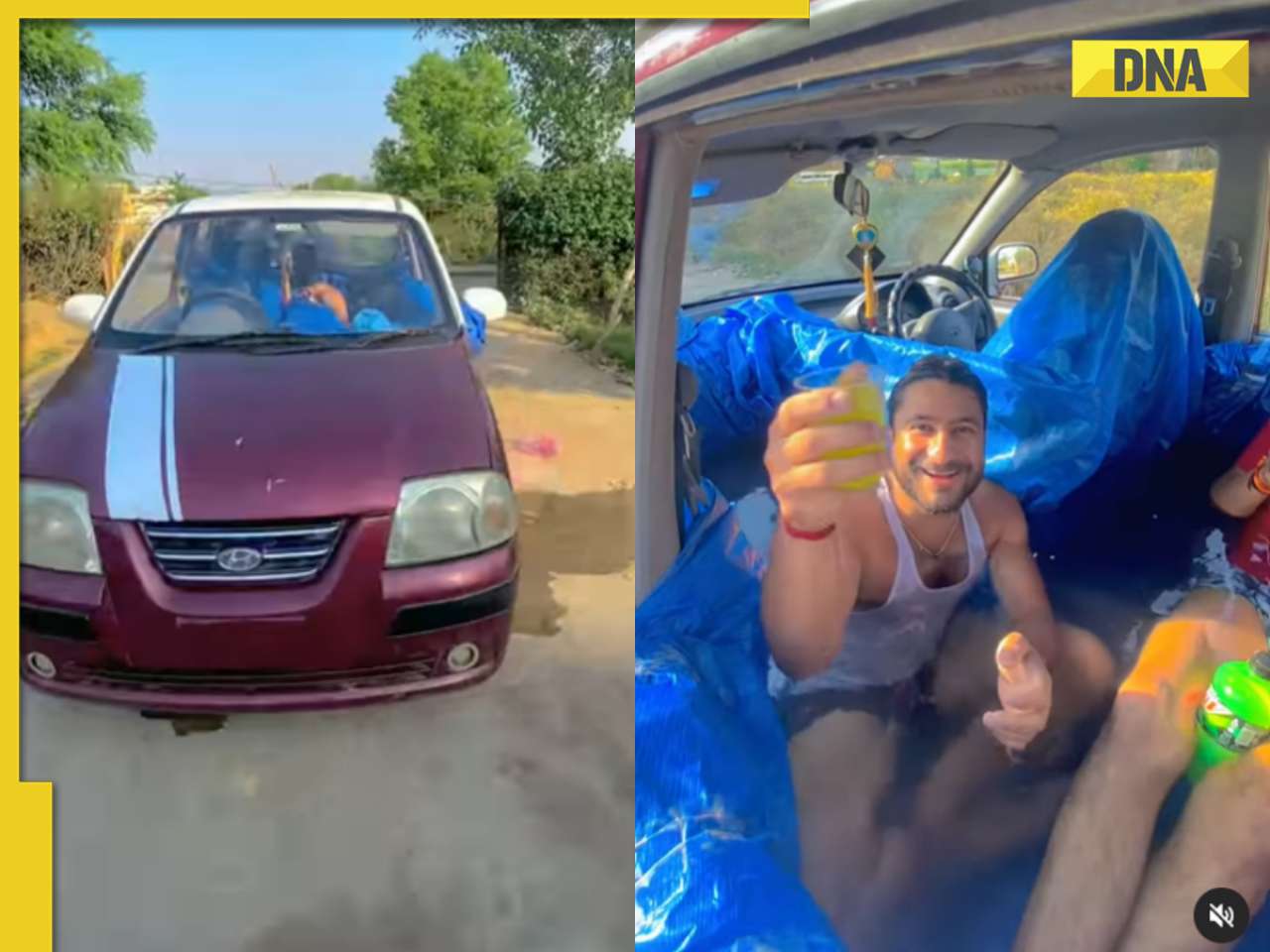
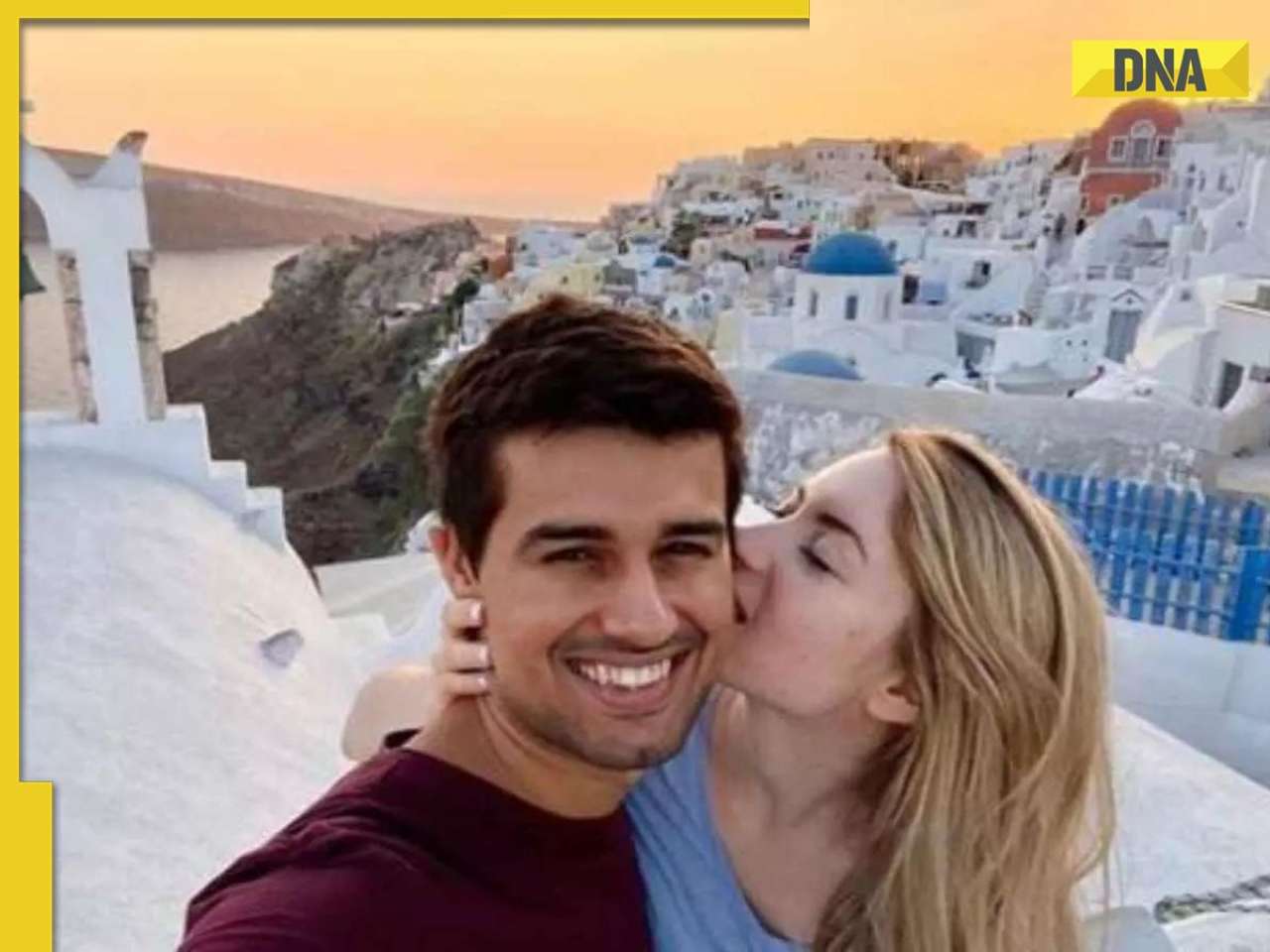
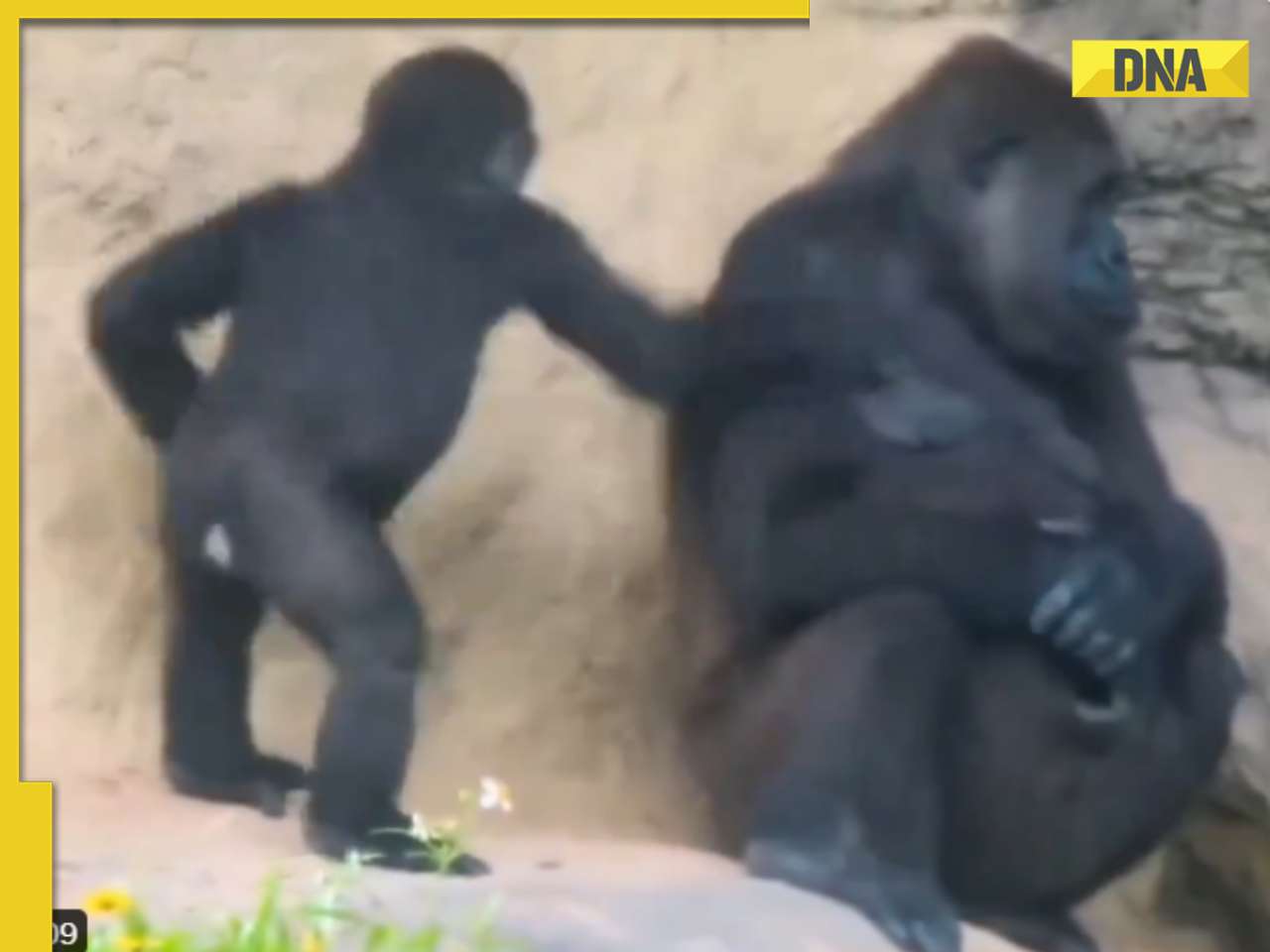






)
)
)
)
)
)